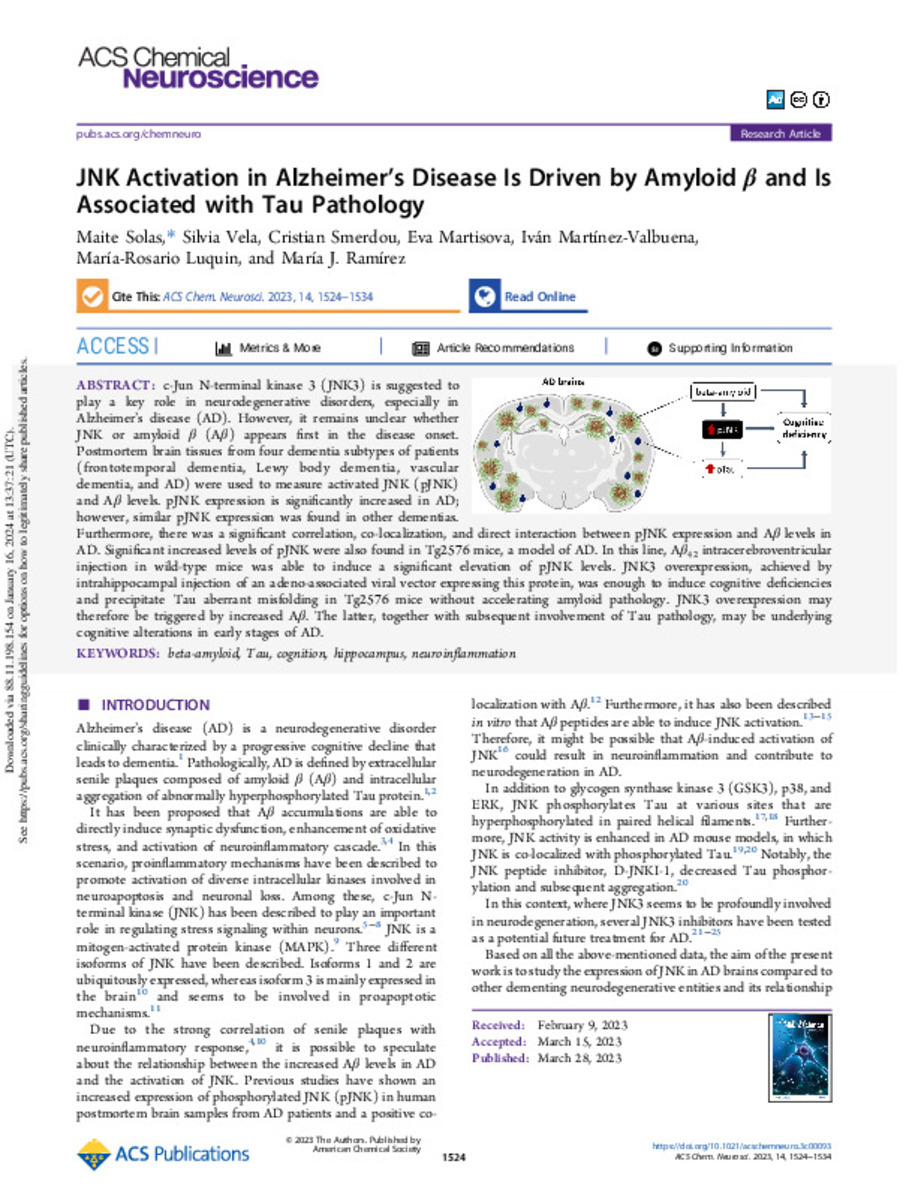JNK Activation in Alzheimer's Disease Is Driven by Amyloid β and Is Associated with Tau Pathology
Palabras clave :
Tau
Beta-amyloid
Cognition
Hippocampus
Neuroinflammation
Fecha de publicación :
2023
Cita:
Solas, M. (Maite); Vela, S. (S.); Smerdou, C. (Cristian); et al. "JNK Activation in Alzheimer's Disease Is Driven by Amyloid β and Is Associated with Tau Pathology". ACS chemical neuroscience. 14 (8), 2023, 1524 - 1534
Aparece en las colecciones:
Estadísticas e impacto
0 citas en

0 citas en

Los ítems de Dadun están protegidos por copyright, con todos los derechos reservados, a menos que se indique lo contrario.







